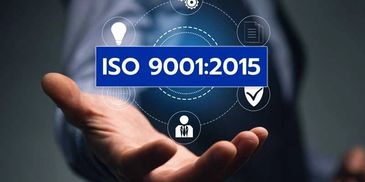ISO SERVICES

ISO 9001:2015
ISO 14001:2015
ISO 14001:2015
At ISO-CONSULTANCY, we have years of experience in the consulting industry. We specialize in providing top-notch services in areas such as marketing, strategy, and operations. Our expertise can help take your business to the next level.

ISO 14001:2015
ISO 14001:2015
ISO 14001:2015
Our team at ISO-CONSULTANCY is made up of highly skilled professionals with diverse backgrounds. We work together to provide our clients with tailored solutions that meet their unique needs. Meet our team and learn more about our individual areas of expertise.

ISO 45001:2018
ISO 14001:2015
ISO 45001:2018
At ISO-CONSULTANCY, we take a holistic approach to consulting. We work closely with our clients to understand their goals and challenges, and develop solutions that address their specific needs. Our approach is collaborative, transparent, and results-driven.

ISO 22000:2018
ISO 14001:2015
ISO 45001:2018
We have had the privilege of working with a wide range of clients across various industries. From startups to established corporations, we have helped businesses of all sizes achieve their goals. Read our case studies to learn more about the impact of our work.

ISO 27001:2022
ISO 27001:2022
ISO 27001:2022
We have had the privilege of working with a wide range of clients across various industries. From startups to established corporations, we have helped businesses of all sizes achieve their goals. Read our case studies to learn more about the impact of our work.

ISO 37001:2025
ISO 27001:2022
ISO 27001:2022
We have had the privilege of working with a wide range of clients across various industries. From startups to established corporations, we have helped businesses of all sizes achieve their goals. Read our case studies to learn more about the impact of our work.

HACCP
ISO 27001:2022
HACCP
We have had the privilege of working with a wide range of clients across various industries. From startups to established corporations, we have helped businesses of all sizes achieve their goals. Read our case studies to learn more about the impact of our work.
Integrated Management System (IMS)

Simple and Efficient Integrated Management System
ISO Consultancy Services flexes its expertise in developing your Integrated Management System (IMS) in compliance with the requirements of ISO 9001, ISO 14001 and ISO 45001 to ensure our simple and efficient Integrated Management System consulting services keep your organization's services competitive. We focus on IMS consulting services that are smart and effective with an affordable investment without the hassle.
ISO-CONSULTANCY
This website uses cookies.
We use cookies to analyze website traffic and optimize your website experience. By accepting our use of cookies, your data will be aggregated with all other user data.